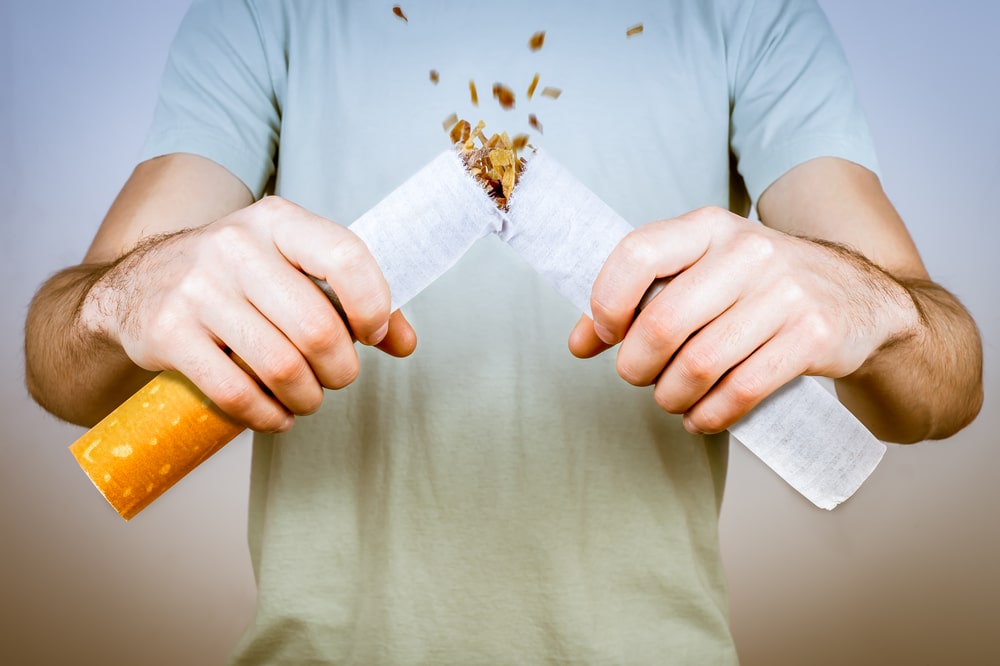How To Overcome a Smoking Relapse?

Many smokers try and fail to give up tobacco numerous times. Whether it’s down to life or peer pressure or simply not being in the right headspace to make the jump, there’s nothing to be ashamed of if you suffer a smoking relapse. In fact, every time that you relapse, you’re learning valuable lessons in how to decrease the chances of it happening next time. As the Stoptober campaign commences, many smokers will be faced with yet another chance to quit tobacco for good and learn from their past mistakes.
But what can smokers do to lessen their chances of another relapse? This blog will explore some of the ways that you can quit smoking for good this Stoptober 2021 and forge a path towards a healthier smoke-free life.
Try Not to Feel Guilty
It’s easy to feel disheartened by a smoking relapse, but it’s important to remember that nicotine is one of the most addictive substances on the planet and that relapses are common. Most relapses occur in the first week of quitting and might come down to stress, nicotine withdrawal symptoms and sometimes even weight gain (cigarettes and nicotine decrease the appetite).
How To Manage Cravings?
The cravings that come with nicotine withdrawal are incredibly powerful but will vary depending on how much you have smoked since your relapse. If the amount you have smoked isn’t very high, then you may not experience any cravings at all. If you do, they will be nowhere near as powerful as when you first tried to quit smoking. Withdrawal symptoms can include nausea, irritability and difficulty concentrating.
Understand Your Triggers
It’s important to know where your triggers stem from and which are the most powerful hurdles in your journey to quitting. Below are examples of just some of the triggers you might encounter that could draw you back to smoking.
Physical Triggers
Physical triggers can include places that you associate with smoking. Whether outside a bar or on your lunch break from work, physical triggers link into a habit and can be difficult to avoid if ingrained into your daily routine. Vaping can help to alleviate physical craving triggers, for instance allowing you to take a “smoke break” with your vaporiser instead of a cigarette.
Psychological Triggers
Also known as emotional triggers, controlling your stress levels and anxiety can help you to avoid smoking. It’s not just negative emotions that can trigger emotional and psychological cravings. You might want to smoke as a reward or when relaxed as well. Try breathing exercises, meditation, and exercise to alleviate the symptoms of psychological triggers.
Social Triggers
Social triggers are the hardest to shake due to the fact that friends and family you are spending time with might want to smoke when you are trying to quit. Whilst companies like Nicohit wholesale suppliers UK offer less dangerous alternatives to smoking, it’s worth letting your friends and family know you are quitting so that they are more sensitive about smoking around you.
Nicotine Replacement Therapy
Nicotine replacement therapy can help ease symptoms of nicotine withdrawal and will allow you the freedom to gradually cut the nicotine intake out entirely, just a step at a time. Nicotine replacement therapies include nicotine gum, patches and most prominently e-cigarettes. The latter is an important breakthrough for the health world, giving ex-smokers a replacement for their habit that you can still hold and inhale. There are many vape liquid flavours, styles and power settings to choose from as well, giving you ultimate flexibility when quitting tobacco.

